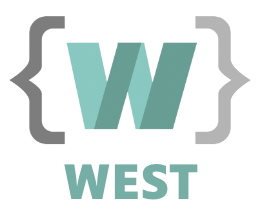Impact your Career through Mentorship
On June 22, WEST partnered with ChickTech to present a virtual panel discussing how women in tech can best leverage mentorship to impact their careers. Our panelists, all former WEST mentees, were: Viola Olayinka (Product Operations Manager at Twilio), Janet Sun (Software Engineer at DoorDash), Anagha Todalbagi (Senior Software Engineer at Duetto), Zorah Fung (Senior Software Engineer at Sift), and Holly Jin (Head of Engineering Operations at DoorDash). The full video of the panel is available on the ChickTech YouTube channel, but here are a few highlights.
Some think mentorship is only helpful when you are earlier in career, but our panelists had a wide range of experience when they participated in WEST. Although Anagha and Zorah were in their first jobs out of college, Viola was a Hackbright graduate switching from a career in law to a career in tech, and Holly and Janet each had 15 to 20 years of experience in the tech industry. All of them found something valuable through the mentorship experience, highlighting that no matter where you are in your career, getting a new perspective brings opportunities for learning and growth.
Mentorship can come in many different flavors, from formal to informal, short term to long term, mentee-driven or mentor-driven. When I asked the panelists what was most helpful in driving their mentorship relationship, most of them mentioned WEST's focus on setting goals, typically related to developing horizontal skills such as Communication, Strategy, Leadership, Career Planning, or Personal Brand. With a high-level goal in mind, mentees focused the individual meetings with their mentors on how to make tactical progress towards their goals. As examples:
Viola's goal was to develop Executive Presence. Her mentor helped break that down into short-term goals and served as a sounding board and offered advice based on their experience in a product role. These discussions inspired ideas for how Viola could step up as a leader in a challenging project with two senior engineers, and her mentor gave her the extra encouragement she needed to just go for it.
Anagha was looking to structure her career growth. As one example, she did a dry run of an architecture design review with her mentor. She got feedback on ways to improve the presentation and prepare for questions she hadn't considered previously. Her mentor also introduced her to another woman at a small startup so they could trade notes on each being one of the few women in early startup environments.
Zorah focused on Focus and Personal brand. Her mentor served as a sounding board and would ask hard questions that challenged her assumptions and helped her see other perspectives. Zorah would also ask for homework, so her mentor also recommended books and articles related to the horizontal skills she was developing, and they would discuss the topics together at their next meeting.
Janet's goals were related to Communication and Career Planning. Before each session, she would share 3 problems or questions with her mentor, and then they would work through them together when they met. Her mentor also encouraged her to develop public speaking skills through Toastmasters.
Holly would problem-solve current issues with her mentor, which expanded her toolset for how to approach new challenges that might arise. Ultimately, because Holly's mentor was also a woman in a leadership role and had similar experiences, themes and ideas emerged for how Holly could further improve her effectiveness as a leader.
When asked what the panelists would have done differently, several admired Viola's and Janet's preparation for each meeting. They would send 2-3 specific topics or questions to their mentor ahead of time, which created an excellent structure for each conversation and ensured they got what they wanted out of each session. Viola also mentioned she lost touch with her mentor and wishes she'd been more transparent about needing to take a break when she was overwhelmed with other things. He got the impression she wasn't interested in continuing even though she genuinely valued his advice and wanted to stay connected. Holly mentioned that she wishes she'd kept a better journal of what ideas emerged from each session as it would be useful to refer back to it on a monthly or quarterly basis. Preparing topics for each meeting and keeping a journal go hand in hand, as you can take notes on the issues discussed in each mentor session.
All of the panelists really appreciated having a mentor from outside their current company. Anagha said because she was at a small company, having a fresh and objective perspective was very helpful, especially as her mentor saw things very differently than she did. Zorah echoed that an objective viewpoint was useful, especially is it related to her own skills and personal brand. Holly appreciated that she could fully expose a problem without worrying about stepping on any toes internally. It was easy to build trust with her external mentor; she felt like she could just vent and get unbiased advice. On the flip side, Holly does see the value of an internal mentor needs less context about the company and product before jumping into problem-solving.
Ultimately, all the panelists found tremendous value in their WEST mentorship experience. They felt their mentors truly helped them achieve their goals and had a very positive impact on their careers.
Viola took to heart her mentor's advice to make the most of each experience and step up to lead when no one else is. She has continued to use that advice to this day, which led to her promotion; Viola is now a people manager.
Anagha felt her mentor had a superpower of being able to see around corners and predict what might happen in the future. Now, whenever Anagha is faced with a challenge or is unsure of next steps, she imagines what her mentor might do or say, which reminds her to think longer-term and come to a solution.
Zorah gained a whole toolbox of different ways to approach problems, work with different people, and have hard conversations successfully. She fast-forwarded her learning in these areas by gleaning insights from her mentor's years of experience.
Janet was able to define her Personal Brand and even created a presentation that describes who she is and her value to any team or project. After years going back and forth between individual contributor and people manager roles, Janet is confident and thriving in her role as an engineer. She has also become VP of PR at DoorDash Toastmasters!
Holly was interested in getting to the next level but felt uncomfortable asking for a promotion. The best advice her mentor gave her was, every month or so, to ask her boss what one job she could take off their plate. Over time, she will eventually be doing the jobs expected at the next level. It's been an eye-opening experience and is a regular practice where Holly both helps her busy boss while also helping prepare herself to be promoted.
Running WEST has always been very rewarding for me, but never more so than hearing directly from mentees how it has impacted their careers. I loved the different perspectives and insights from this panel and hope it will be helpful for anyone looking to leverage mentorship to propel their careers forward! If you are interested in WEST mentorship, we are launching a new cohort of mentees and mentors on July 22, 2020. Details here!
Also, our partners at ChickTech are offering a special deal to save on WEST, plus access free career-boosting webinars and an empowering community of womxn in tech. When you join ChickTech's membership platform ACT-W+ with a yearly membership ($250), you receive a $250 discount to WEST. You can learn more about ACT-W+ at https://act-w.org/plus.



